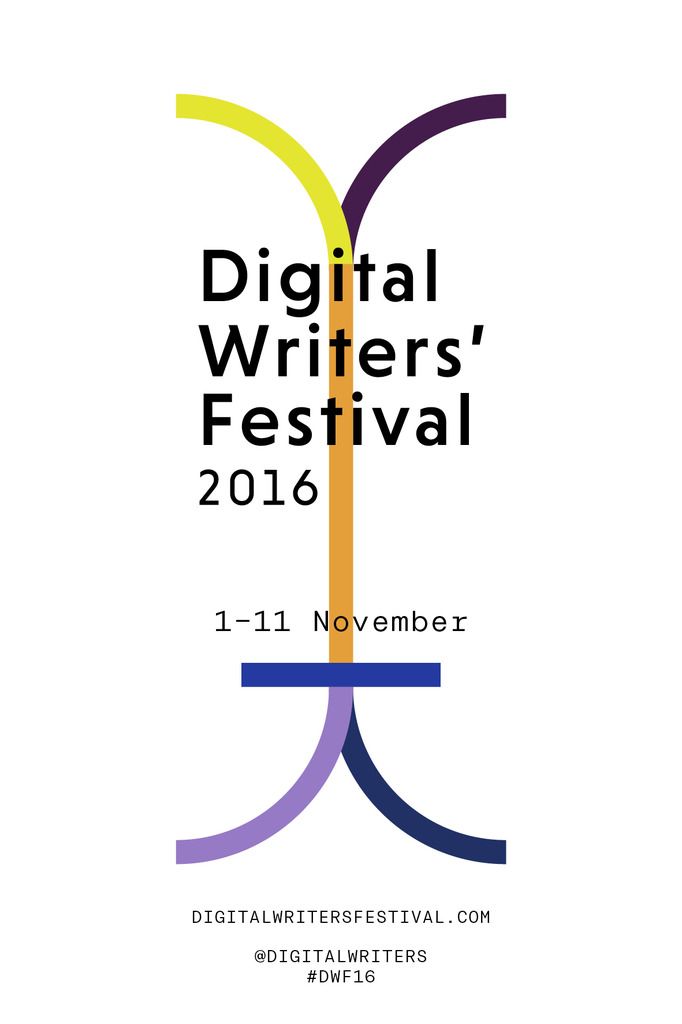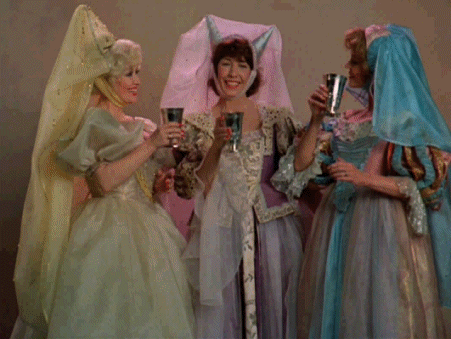The Digital Writers Festival 2016

This is an interview with Jane Howard, Director of the Digital Writers’ Festival.
The Digital Writers’ Festival is unique. Co-ordinated from Melbourne, Australia, it is held entirely online, and available to anyone in the world, instantly and for free, because we live in the future and it is glorious. We spoke to Jane Howard, the new Festival Director about her vision, what we can expect, and how you can be involved.
First of all, congratulations of becoming the Director of the Digital Writers’ Festival. From the outside, it looks like a wonderful opportunity to work with some incredible talents. What drew you to the role?
Thank you! The role was one of those things I didn’t know I was looking for until I found it and it was perfect. Being involved in writers festivals as young writer – firstly as a shy audience member who barely spoke to anyone, and then as an artist – was transformative for me and my career. But being involved in those festivals always meant getting on a plane from Adelaide – exciting for sure, but not always feasible. I love that DWF allows these connections for people who live away from the literary centres of Australia. It’s also incredibly special to be asking writers to be involved in their first panels and be a part of their early careers, and to reach out to writers I admire and get to work with them, too.
What are some events/ideas you are particularly excited about? I know you must be impartial won’t ask you to pick favourites, but if you HAD to pick a favourite….?
There are some serious events and topics in the festival, but at the moment I’m quite partial to those where I think we can all have a bit of fun, like hearing two professional audio describers describe pictures from the internet and some writers come up with imagined futures for what the internet could become. And favourites are hard, but I am really excited for My Brilliant Bookclub, mostly because I don’t know if it will work! I hope it does and that people are engaged with Franklin’s book, and with trying to figure out how to use new technology to talk about this piece of classic literature which casts such a big shadow but so few of us have actually read (I only caught up earlier this year!). Best case scenario it will be some sort of a difficult beautiful mess.

The program reveals a wide breadth of topics, and ideas. Are there any particular themes you wanted to explore with the programming?
The theme that I want a lot of the program to keep returning to is “what are the possibilities of the digital space?” I don’t know if this question will be evident in every panel – except for the fact that they wouldn’t be happening without the digital space! – but I think it’s a question we all need to keep asking ourselves. Even though most of us spend so much time online, I don’t think we’ve entirely figured out the possibilities of this space, and we’re still constantly finding new ways it can be difficult. On the surface, panels like Don’t Read The Comments, on writing about political subjects, and the two-part Moving Away series, on moving countries, might seem like they’re about completely different things – but by placing them in an online writers festival, or even just in 2016, the connection they share over digital spaces becomes key.
The obvious superpower of an entirely digital festival is that you are free from the tyranny of geography. What opportunities and events has this opened up for you as a Director?
Beyond being able to work with writers from across Australia, I’m really excited to hear from the public astronomer and the art curator of Royal Observatory Greenwich – certainly not two people I thought I would be able to program!
It doesn’t have to be part of DWF necessarily, but what are some online happenings where tech and writing have come together that particularly excite or inspire you?
My Brilliant Bookclub was borne out of being a big fan of the work of Leah Finnegan when she was the News Editor at Genius. Having an interesting concept behind a tech platform is one thing, but Finnegan’s use of Genius to create cutting and insightful media commentary was what made that tech really exciting, especially the way she could balance crafting both detailed political commentary alongside brilliant humour. Her leaving that organisation was, I think ,a big loss for media criticism, but I am enjoying her newsletter muchly. It’s no secret I am more than a little bit obsessed with the way that writers, especially young women, are using newsletters to play around with their voice and relationship to their audience, but I’m also excited by the beautiful transience and disposability of this form of publishing. (Speaking of which, have you signed up for DWF’s Women of TinyLetters yet?)
I’ll ask you to please prove your bona fides. What is the best GIF on the internet?

Is there anything you would like our readers/the world to know about the festival? What should they do to get involved?
We have a great series of workshops for which tickets are now on sale – they cover everything from the super fun, like getting on top of your Superannuation, to the actually fun, like learning how to be a better performer. All of the panels are free and can be watched straight on our website, or pop over and subscribe to our YouTube. We also have a bunch of projects which will be published and shift over the course of the festival, so I hope people keep coming back to see how the website grows.
And if people are really keen, it is a goal of mine to see DWF improve its accessibility by providing closed captions on our videos. You can volunteer in contributing closed captions to any of our videos here, and find YouTube’s tips on captioning here – you can provide as little as a sentence, or as much as a whole panel. It all helps.
The Festival begins on November 1, 2016. Stay up to date the with the Digital Writers’ Festival on Twitter , Facebook and Instagram.
[ad_2]

